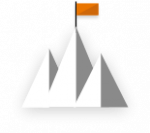We use cookies to improve your experience on our website.
The Challenge
A child without education is a child with little hope to succeed in life.
The UNESCO Institute for Statistics (UIS) estimates that more than 617 million children and adolescents in the world do not reach minimum proficiency levels in reading and math. Many of them have never attended school; the rest have done so briefly or in fundamentally dysfunctional institutions.
The latest UNHCR numbers count 79.5 million people who are refugees or forcibly displaced; more than half of these being children, half of whom get no education. Lack of education in fragile states can be attributed to the scarcity of school facilities, the absence of teachers, poverty or orphism, distance to schools, lack of community support and other reasons. Further, 132 million girls have no access to education merely because of their gender.
The numbers and categories of children deprived of education can vary from survey to survey and between the different sources, but in all cases, the scale of the problem is counted in hundreds of millions of children.
The challenge at hand for WRS and our partners is to bring quality education to each one of these children.
The Answer
This challenge is so large in scale that it cannot be solved without the scaling power of technology. Education is in its essence a profoundly human and social process. Technology applied in the right way can augment the unique human value, while empowering the student, the teacher, and the community, and making quality education scalable, affordable and certified.
WRS is committed to adapting and configuring technology to serve this end; to enhance the educational processes and organization to be able to leverage the adapted technology, and to invite the technology industry to bring their solutions, innovation power and resources to bear on this challenge.
Many of the crises resulting in the challenge are semi-permanent, expanding or cyclical of nature. This means that our answers need to be durable – providing solutions that will last – and immediate – providing solutions as emergency response since education cannot wait.
The role of WRS
WRS Global is a school that leverages technology to provide quality education to children in need globally in an affordable, scalable, durable, immediate and certified way.
To achieve this, many different existing solutions need to be combined; many components and combinations need to be innovated; the insights, resources and experiences of many companies need to be activated into working ecosystems. The role of WRS is to catalyze and orchestrate the formation and growth of these ecosystems.

Solve the education problem for the worlds’ refugee, displaced, and fragile communities.

Leveraging technology to provide scalable, affordable, and certified high quality education for the world’s refugee and displaced children, and communities in fragile countries.
WRS’ utilized platform enables cross-border, multi-curriculum, multi-language, multi-learning-style education and learning management at different levels within the educational institution. That includes, the school, classes, teachers, parents, and student levels. It provides communication and community support tools to strengthen economic and social bonds among students, teachers, and families within the local community. Thereby, it allows affordable and manageable scaling to millions of students.
At large scale, WRS has deployed a fully loaded platform—including content, hardware, infrastructure, teaching, and management. WRS does not exceed 7.5% total overhead in its deployments.
WRS uses its education infrastructure to provide training for older siblings, parents, and adult members of the community. This extends to the inclusion of older siblings and adults in teacher training, as teachers or assistant teachers. An eventual effect of this cascade is community support for education, community pride in jobs, and an overall stronger community.
WRS has not been created to replace existing, good education efforts, but to provide access to a richer supply of content and to a realistic path to globally accredited certification to all providers of education, using technology. Only by being part of a growing ecosystem of education providers and providers of education solutions can the challenge of education for all children be achieved.
WRS believes that every child engaging in education and learning should be entitled to their accomplishments recognized. We are therefore committed to a program of certification of international accreditation. Our education follows the relevant curricula in the countries where we operate. However, we ensure standardization and recognition across borders, and we capture and document the necessary data on each child’s achievements, so that certificates can be issued in all cases. On top of this we work with certifying authorities such as Ofqual and agencies such as City & Guilds to ensure that the certification can be accredited.
OUR PROJECTS:
In its introductory phase, WRS is has tested and adapted learning content and resources for use with refugees in preparation for scale-up in 2018 and beyond.
I Can Project:
Mateen and World Refugee School had joined forces to start the I Can project ; which provides Syrian refugee children at informal tent settlements, who have had no access to education, with quality education through smart technology. Project targets refugee children that have been out of school for varying periods of time living in informal tent settlements in Mafraq, Jordan. WRS has implement a pilot project to create new centers for learning to provide Syrian refugee children with accelerated, play-based learning to bring them up to the level of their peers as quickly as possible. The project focuses on helping bridge the educational gap in grade one level Arabic and English as delineated by Jordanian education standards.
Additionally, IT solutions are provided including on-site set up, equipment installations, cloud hosting, as well as update content and troubleshoot problems with the system remotely. IT equipment is also provided including laptops and associated supplies (mouse, bags, cables, etc.) for teachers, as well as projectors, and IPEVO smart pens.
Digital Opportunity Trust: Assistance teachers and community:
Digital Opportunity Trust (DOT) Jordan and World Refugee School have partnered to provide educational content to refugee youth and young adults across Jordan through existing, government-sponsored computer labs/community centers called Knowledge Stations. DOT hopes to reach beneficiaries by renovating several Knowledge Stations, with the goal of eventually expanding to serve additional Knowledge Stations across Jordan. The objective of this project is to increase digital literacy and job opportunities, especially those who might not otherwise have internet access, through the provision of new educational content to at least 200 refugees. The content provided consists of English learning content through Rosetta Stone and ArabCode, an online course which teaches participants to code HTML. The project will also provide intensive training over the course of several days to familiarize facilitators with the platform and content as well as additional technical support to ensure smooth implementation.

WRS functions within an ecosystem of partners, including technology partners, content partners, teacher training partners, certification partners, educational implementation partners, education policy partners, project management partners, funding partners as well as numerous ministries and agencies.